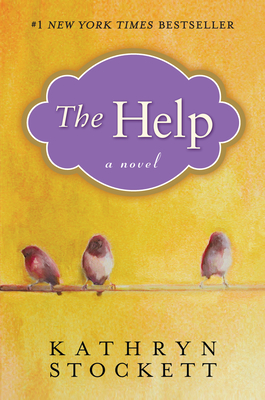 If you don't think that society has changed much in the last half century, then perhaps you should take a look at The Help by Kathryn Stockett. Set in segregated Mississippi in the early 1960's, The Help explores the lives of white people and the black women who work in their homes. Each chapter is told from the point of view of one of the main characters and gives an intriguing look at life at that time in that part of the country.
If you don't think that society has changed much in the last half century, then perhaps you should take a look at The Help by Kathryn Stockett. Set in segregated Mississippi in the early 1960's, The Help explores the lives of white people and the black women who work in their homes. Each chapter is told from the point of view of one of the main characters and gives an intriguing look at life at that time in that part of the country.
The story tells about Skeeter, a white woman who has just graduated from college and returns to the city of her childhood. Another character is Minny, a black woman who has lost many housekeeping jobs because she can't keep herself from saying how she really feels. We also learn about Aibileen, a black woman who has endured a great loss and has her own story to tell.
These three women collaborate to write a book anonymously that tells exactly how it is to be a black woman who working as a housekeeper who sacrifices her own life to earn money taking care of white people. The author does an excellent job of painting a picture of how risky writing this book really would have been for people in the segregated south. What would have happened if someone found out who wrote the book? What could they do to insure their safety if someone suspected that they were the authors?
It wasn't until I was almost done with the book that I remembered someone in my family used to tell us about the African American woman who was his family's "help" when he was growing up. She took care of all the children in the family and did all the household chores. He would talk about her as if it was a good situation for her as well as the family. I never really thought about this before until I read this book. Would she really say that it was a good situation for her or was there another life that she would rather have been living?
Kathryn Stockett grew up in Jackson, Mississippi with "help" in her home. Having the story told by someone who experienced this social structure makes it seem more plausible. Have we come a long way from this time? Let's hope so.--Melanie



No comments:
Post a Comment